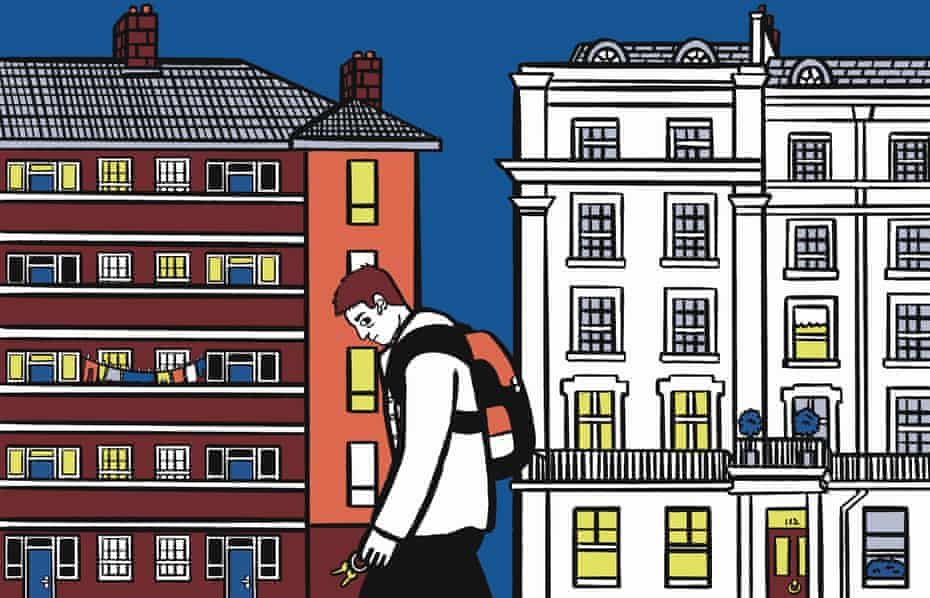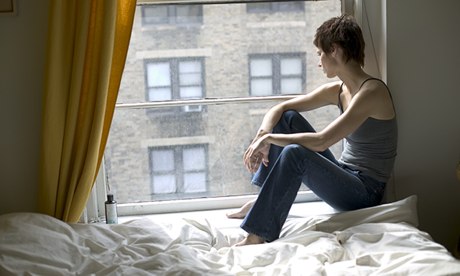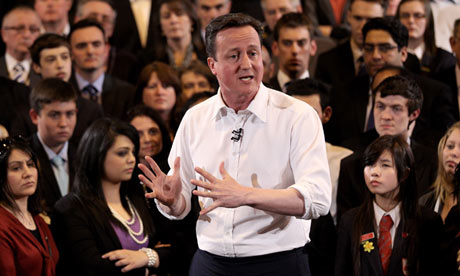'People will forgive you for being wrong, but they will never forgive you for being right - especially if events prove you right while proving them wrong.' Thomas Sowell
Search This Blog
Wednesday, 31 January 2024
Saturday, 30 December 2023
Thursday, 17 August 2023
The U bend of Life
Why, beyond middle age, people get happier as they get older writes The Economist

ASK people how they feel about getting older, and they will probably reply in the same vein as Maurice Chevalier: “Old age isn't so bad when you consider the alternative.” Stiffening joints, weakening muscles, fading eyesight and the clouding of memory, coupled with the modern world's careless contempt for the old, seem a fearful prospect—better than death, perhaps, but not much. Yet mankind is wrong to dread ageing. Life is not a long slow decline from sunlit uplands towards the valley of death. It is, rather, a U-bend.
When people start out on adult life, they are, on average, pretty cheerful. Things go downhill from youth to middle age until they reach a nadir commonly known as the mid-life crisis. So far, so familiar. The surprising part happens after that. Although as people move towards old age they lose things they treasure—vitality, mental sharpness and looks—they also gain what people spend their lives pursuing: happiness.
This curious finding has emerged from a new branch of economics that seeks a more satisfactory measure than money of human well-being. Conventional economics uses money as a proxy for utility—the dismal way in which the discipline talks about happiness. But some economists, unconvinced that there is a direct relationship between money and well-being, have decided to go to the nub of the matter and measure happiness itself.
These ideas have penetrated the policy arena, starting in Bhutan, where the concept of Gross National Happiness shapes the planning process. All new policies have to have a GNH assessment, similar to the environmental-impact assessment common in other countries. In 2008 France's president, Nicolas Sarkozy, asked two Nobel-prize-winning economists, Amartya Sen and Joseph Stiglitz, to come up with a broader measure of national contentedness than GDP. Then last month, in a touchy-feely gesture not typical of Britain, David Cameron announced that the British government would start collecting figures on well-being.
There are already a lot of data on the subject collected by, for instance, America's General Social Survey, Eurobarometer and Gallup. Surveys ask two main sorts of question. One concerns people's assessment of their lives, and the other how they feel at any particular time. The first goes along the lines of: thinking about your life as a whole, how do you feel? The second is something like: yesterday, did you feel happy/contented/angry/anxious? The first sort of question is said to measure global well-being, and the second hedonic or emotional well-being. They do not always elicit the same response: having children, for instance, tends to make people feel better about their life as a whole, but also increases the chance that they felt angry or anxious yesterday.
Statisticians trawl through the vast quantities of data these surveys produce rather as miners panning for gold. They are trying to find the answer to the perennial question: what makes people happy?
Four main factors, it seems: gender, personality, external circumstances and age. Women, by and large, are slightly happier than men. But they are also more susceptible to depression: a fifth to a quarter of women experience depression at some point in their lives, compared with around a tenth of men. Which suggests either that women are more likely to experience more extreme emotions, or that a few women are more miserable than men, while most are more cheerful.
Two personality traits shine through the complexity of economists' regression analyses: neuroticism and extroversion. Neurotic people—those who are prone to guilt, anger and anxiety—tend to be unhappy. This is more than a tautological observation about people's mood when asked about their feelings by pollsters or economists. Studies following people over many years have shown that neuroticism is a stable personality trait and a good predictor of levels of happiness. Neurotic people are not just prone to negative feelings: they also tend to have low emotional intelligence, which makes them bad at forming or managing relationships, and that in turn makes them unhappy.
Whereas neuroticism tends to make for gloomy types, extroversion does the opposite. Those who like working in teams and who relish parties tend to be happier than those who shut their office doors in the daytime and hole up at home in the evenings. This personality trait may help explain some cross-cultural differences: a study comparing similar groups of British, Chinese and Japanese people found that the British were, on average, both more extrovert and happier than the Chinese and Japanese.
Then there is the role of circumstance. All sorts of things in people's lives, such as relationships, education, income and health, shape the way they feel. Being married gives people a considerable uplift, but not as big as the gloom that springs from being unemployed. In America, being black used to be associated with lower levels of happiness—though the most recent figures suggest that being black or Hispanic is nowadays associated with greater happiness. People with children in the house are less happy than those without. More educated people are happier, but that effect disappears once income is controlled for. Education, in other words, seems to make people happy because it makes them richer. And richer people are happier than poor ones—though just how much is a source of argument (see article).
The view from winter
Lastly, there is age. Ask a bunch of 30-year-olds and another of 70-year-olds (as Peter Ubel, of the Sanford School of Public Policy at Duke University, did with two colleagues, Heather Lacey and Dylan Smith, in 2006) which group they think is likely to be happier, and both lots point to the 30-year-olds. Ask them to rate their own well-being, and the 70-year-olds are the happier bunch. The academics quoted lyrics written by Pete Townshend of The Who when he was 20: “Things they do look awful cold / Hope I die before I get old”. They pointed out that Mr Townshend, having passed his 60th birthday, was writing a blog that glowed with good humour.

Mr Townshend may have thought of himself as a youthful radical, but this view is ancient and conventional. The “seven ages of man”—the dominant image of the life-course in the 16th and 17th centuries—was almost invariably conceived as a rise in stature and contentedness to middle age, followed by a sharp decline towards the grave. Inverting the rise and fall is a recent idea. “A few of us noticed the U-bend in the early 1990s,” says Andrew Oswald, professor of economics at Warwick Business School. “We ran a conference about it, but nobody came.”
Since then, interest in the U-bend has been growing. Its effect on happiness is significant—about half as much, from the nadir of middle age to the elderly peak, as that of unemployment. It appears all over the world. David Blanchflower, professor of economics at Dartmouth College, and Mr Oswald looked at the figures for 72 countries. The nadir varies among countries—Ukrainians, at the top of the range, are at their most miserable at 62, and Swiss, at the bottom, at 35—but in the great majority of countries people are at their unhappiest in their 40s and early 50s. The global average is 46.
The U-bend shows up in studies not just of global well-being but also of hedonic or emotional well-being. One paper, published this year by Arthur Stone, Joseph Schwartz and Joan Broderick of Stony Brook University, and Angus Deaton of Princeton, breaks well-being down into positive and negative feelings and looks at how the experience of those emotions varies through life. Enjoyment and happiness dip in middle age, then pick up; stress rises during the early 20s, then falls sharply; worry peaks in middle age, and falls sharply thereafter; anger declines throughout life; sadness rises slightly in middle age, and falls thereafter.
Turn the question upside down, and the pattern still appears. When the British Labour Force Survey asks people whether they are depressed, the U-bend becomes an arc, peaking at 46.
Happier, no matter what
There is always a possibility that variations are the result not of changes during the life-course, but of differences between cohorts. A 70-year-old European may feel different to a 30-year-old not because he is older, but because he grew up during the second world war and was thus formed by different experiences. But the accumulation of data undermines the idea of a cohort effect. Americans and Zimbabweans have not been formed by similar experiences, yet the U-bend appears in both their countries. And if a cohort effect were responsible, the U-bend would not show up consistently in 40 years' worth of data.
Another possible explanation is that unhappy people die early. It is hard to establish whether that is true or not; but, given that death in middle age is fairly rare, it would explain only a little of the phenomenon. Perhaps the U-bend is merely an expression of the effect of external circumstances. After all, common factors affect people at different stages of the life-cycle. People in their 40s, for instance, often have teenage children. Could the misery of the middle-aged be the consequence of sharing space with angry adolescents? And older people tend to be richer. Could their relative contentment be the result of their piles of cash?
The answer, it turns out, is no: control for cash, employment status and children, and the U-bend is still there. So the growing happiness that follows middle-aged misery must be the result not of external circumstances but of internal changes.
People, studies show, behave differently at different ages. Older people have fewer rows and come up with better solutions to conflict. They are better at controlling their emotions, better at accepting misfortune and less prone to anger. In one study, for instance, subjects were asked to listen to recordings of people supposedly saying disparaging things about them. Older and younger people were similarly saddened, but older people less angry and less inclined to pass judgment, taking the view, as one put it, that “you can't please all the people all the time.”
There are various theories as to why this might be so. Laura Carstensen, professor of psychology at Stanford University, talks of “the uniquely human ability to recognise our own mortality and monitor our own time horizons”. Because the old know they are closer to death, she argues, they grow better at living for the present. They come to focus on things that matter now—such as feelings—and less on long-term goals. “When young people look at older people, they think how terrifying it must be to be nearing the end of your life. But older people know what matters most.” For instance, she says, “young people will go to cocktail parties because they might meet somebody who will be useful to them in the future, even though nobody I know actually likes going to cocktail parties.”
Death of ambition, birth of acceptance
There are other possible explanations. Maybe the sight of contemporaries keeling over infuses survivors with a determination to make the most of their remaining years. Maybe people come to accept their strengths and weaknesses, give up hoping to become chief executive or have a picture shown in the Royal Academy, and learn to be satisfied as assistant branch manager, with their watercolour on display at the church fete. “Being an old maid”, says one of the characters in a story by Edna Ferber, an (unmarried) American novelist, was “like death by drowning—a really delightful sensation when you ceased struggling.” Perhaps acceptance of ageing itself is a source of relief. “How pleasant is the day”, observed William James, an American philosopher, “when we give up striving to be young—or slender.”
Whatever the causes of the U-bend, it has consequences beyond the emotional. Happiness doesn't just make people happy—it also makes them healthier. John Weinman, professor of psychiatry at King's College London, monitored the stress levels of a group of volunteers and then inflicted small wounds on them. The wounds of the least stressed healed twice as fast as those of the most stressed. At Carnegie Mellon University in Pittsburgh, Sheldon Cohen infected people with cold and flu viruses. He found that happier types were less likely to catch the virus, and showed fewer symptoms of illness when they did. So although old people tend to be less healthy than younger ones, their cheerfulness may help counteract their crumbliness.
Happier people are more productive, too. Mr Oswald and two colleagues, Eugenio Proto and Daniel Sgroi, cheered up a bunch of volunteers by showing them a funny film, then set them mental tests and compared their performance to groups that had seen a neutral film, or no film at all. The ones who had seen the funny film performed 12% better. This leads to two conclusions. First, if you are going to volunteer for a study, choose the economists' experiment rather than the psychologists' or psychiatrists'. Second, the cheerfulness of the old should help counteract their loss of productivity through declining cognitive skills—a point worth remembering as the world works out how to deal with an ageing workforce.
The ageing of the rich world is normally seen as a burden on the economy and a problem to be solved. The U-bend argues for a more positive view of the matter. The greyer the world gets, the brighter it becomes—a prospect which should be especially encouraging to Economist readers (average age 47).
Thursday, 16 June 2022
Saturday, 9 April 2022
Sunday, 13 February 2022
Monday, 3 January 2022
Can you think yourself young?
For more than a decade, Paddy Jones has been wowing audiences across the world with her salsa dancing. She came to fame on the Spanish talent show Tú Sí Que Vales (You’re Worth It) in 2009 and has since found success in the UK, through Britain’s Got Talent; in Germany, on Das Supertalent; in Argentina, on the dancing show Bailando; and in Italy, where she performed at the Sanremo music festival in 2018 alongside the band Lo Stato Sociale.
Jones also happens to be in her mid-80s, making her the world’s oldest acrobatic salsa dancer, according to Guinness World Records. Growing up in the UK, Jones had been a keen dancer and had performed professionally before she married her husband, David, at 22 and had four children. It was only in retirement that she began dancing again – to widespread acclaim. “I don’t plead my age because I don’t feel 80 or act it,” Jones told an interviewer in 2014.
According to a wealth of research that now spans five decades, we would all do well to embrace the same attitude – since it can act as a potent elixir of life. People who see the ageing process as a potential for personal growth tend to enjoy much better health into their 70s, 80s and 90s than people who associate ageing with helplessness and decline, differences that are reflected in their cells’ biological ageing and their overall life span.
 Salsa dancer Paddy Jones, centre. Photograph: Alberto Terenghi/IPA/Shutterstock
Salsa dancer Paddy Jones, centre. Photograph: Alberto Terenghi/IPA/ShutterstockOf all the claims I have investigated for my new book on the mind-body connection, the idea that our thoughts could shape our ageing and longevity was by far the most surprising. The science, however, turns out to be incredibly robust. “There’s just such a solid base of literature now,” says Prof Allyson Brothers at Colorado State University. “There are different labs in different countries using different measurements and different statistical approaches and yet the answer is always the same.”
If I could turn back time
The first hints that our thoughts and expectations could either accelerate or decelerate the ageing process came from a remarkable experiment by the psychologist Ellen Langer at Harvard University.
In 1979, she asked a group of 70- and 80-year-olds to complete various cognitive and physical tests, before taking them to a week-long retreat at a nearby monastery that had been redecorated in the style of the late 1950s. Everything at the location, from the magazines in the living room to the music playing on the radio and the films available to watch, was carefully chosen for historical accuracy.If you believe that you are frail and helpless, small difficulties will start to feel more threatening
The researchers asked the participants to live as if it were 1959. They had to write a biography of themselves for that era in the present tense and they were told to act as independently as possible. (They were discouraged from asking for help to carry their belongings to their room, for example.) The researchers also organised twice-daily discussions in which the participants had to talk about the political and sporting events of 1959 as if they were currently in progress – without talking about events since that point. The aim was to evoke their younger selves through all these associations.
To create a comparison, the researchers ran a second retreat a week later with a new set of participants. While factors such as the decor, diet and social contact remained the same, these participants were asked to reminisce about the past, without overtly acting as if they were reliving that period.
Most of the participants showed some improvements from the baseline tests to the after-retreat ones, but it was those in the first group, who had more fully immersed themselves in the world of 1959, who saw the greatest benefits. Sixty-three per cent made a significant gain on the cognitive tests, for example, compared to just 44% in the control condition. Their vision became sharper, their joints more flexible and their hands more dextrous, as some of the inflammation from their arthritis receded. As enticing as these findings might seem, Langer’s was based on a very small sample size. Extraordinary claims need extraordinary evidence and the idea that our mindset could somehow influence our physical ageing is about as extraordinary as scientific theories come.
Becca Levy, at the Yale School of Public Health, has been leading the way to provide that proof. In one of her earliest – and most eye-catching – papers, she examined data from the Ohio Longitudinal Study of Aging and Retirement that examined more than 1,000 participants since 1975.
The participants’ average age at the start of the survey was 63 years old and soon after joining they were asked to give their views on ageing. For example, they were asked to rate their agreement with the statement: “As you get older, you are less useful”. Quite astonishingly, Levy found the average person with a more positive attitude lived on for 22.6 years after the study commenced, while the average person with poorer interpretations of ageing survived for just 15 years. That link remained even after Levy had controlled for their actual health status at the start of the survey, as well as other known risk factors, such as socioeconomic status or feelings of loneliness, which could influence longevity.
The implications of the finding are as remarkable today as they were in 2002, when the study was first published. “If a previously unidentified virus was found to diminish life expectancy by over seven years, considerable effort would probably be devoted to identifying the cause and implementing a remedy,” Levy and her colleagues wrote. “In the present case, one of the likely causes is known: societally sanctioned denigration of the aged.”
Later studies have since reinforced the link between people’s expectations and their physical ageing, while dismissing some of the more obvious – and less interesting – explanations. You might expect that people’s attitudes would reflect their decline rather than contribute to the degeneration, for example. Yet many people will endorse certain ageist beliefs, such as the idea that “old people are helpless”, long before they should have started experiencing age-related disability themselves. And Levy has found that those kinds of views, expressed in people’s mid-30s, can predict their subsequent risk of cardiovascular disease up to 38 years later.
The most recent findings suggest that age beliefs may play a key role in the development of Alzheimer’s disease. Tracking 4,765 participants over four years, the researchers found that positive expectations of ageing halved the risk of developing the disease, compared to those who saw old age as an inevitable period of decline. Astonishingly, this was even true of people who carried a harmful variant of the APOE gene, which is known to render people more susceptible to the disease. The positive mindset can counteract an inherited misfortune, protecting against the build-up of the toxic plaques and neuronal loss that characterise the disease.
How could this be?
Behaviour is undoubtedly important. If you associate age with frailty and disability, you may be less likely to exercise as you get older and that lack of activity is certainly going to increase your predisposition to many illnesses, including heart disease and Alzheimer’s.
Our culture is saturated with messages that reinforce the damaging age beliefs. Just consider greetings cards
Importantly, however, our age beliefs can also have a direct effect on our physiology. Elderly people who have been primed with negative age stereotypes tend to have higher systolic blood pressure in response to challenges, while those who have seen positive stereotypes demonstrate a more muted reaction. This makes sense: if you believe that you are frail and helpless, small difficulties will start to feel more threatening. Over the long term, this heightened stress response increases levels of the hormone cortisol and bodily inflammation, which could both raise the risk of ill health.
The consequences can even be seen within the nuclei of the individual cells, where our genetic blueprint is stored. Our genes are wrapped tightly in each cell’s chromosomes, which have tiny protective caps, called telomeres, which keep the DNA stable and stop it from becoming frayed and damaged. Telomeres tend to shorten as we age and this reduces their protective abilities and can cause the cell to malfunction. In people with negative age beliefs, that process seems to be accelerated - their cells look biologically older. In those with the positive attitudes, it is much slower - their cells look younger.
For many scientists, the link between age beliefs and long-term health and longevity is practically beyond doubt. “It’s now very well established,” says Dr David Weiss, who studies the psychology of ageing at Martin-Luther University of Halle-Wittenberg in Germany. And it has critical implications for people of all generations.
 Birthday cards sent to Captain Tom Moore for his 100th birthday – many cards for older people have a less respectful tone. Photograph: Shaun Botterill/Getty Images
Birthday cards sent to Captain Tom Moore for his 100th birthday – many cards for older people have a less respectful tone. Photograph: Shaun Botterill/Getty ImagesOur culture is saturated with messages that reinforce the damaging age beliefs. Just consider greetings cards, which commonly play on of images depicting confused and forgetful older people. “The other day, I went to buy a happy 70th birthday card for a friend and I couldn’t find a single one that wasn’t a joke,” says Martha Boudreau, the chief communications officer of AARP, a special interest group (formerly known as the American Association of Retired Persons) that focuses on the issues of over-50s.
She would like to see greater awareness – and intolerance – of age stereotypes, in much the same way that people now show greater sensitivity to sexism and racism. “Celebrities, thought leaders and influencers need to step forward,” says Boudreau.
In the meantime, we can try to rethink our perceptions of our own ageing. Various studies show that our mindsets are malleable. By learning to reject fatalistic beliefs and appreciate some of the positive changes that come with age, we may avoid the amplified stress responses that arise from exposure to negative stereotypes and we may be more motivated to exercise our bodies and minds and to embrace new challenges.
We could all, in other words, learn to live like Paddy Jones.
When I interviewed Jones, she was careful to emphasise the potential role of luck in her good health. But she agrees that many people have needlessly pessimistic views of their capabilities, over what could be their golden years, and encourages them to question the supposed limits. “If you feel there’s something you want to do, and it inspires you, try it!” she told me. “And if you find you can’t do it, then look for something else you can achieve.”
Whatever our current age, that’s surely a winning attitude that will set us up for greater health and happiness for decades to come.
Monday, 20 September 2021
Eat the rich! Why millennials and generation Z have turned their backs on capitalism
The young are hungry and the rich are on the menu. This delicacy first appeared in the 18th century, when the philosopher Jean-Jacques Rousseau supposedly declared: “When the people shall have no more to eat, they will eat the rich!” But today this phrase is all over Twitter and other social media. On TikTok, viral videos feature fresh-faced youngsters menacingly raising their forks at anyone with cars that have start buttons or fridges that have water and ice dispensers.
So should the world’s billionaires – and fridge-owners – start sleeping with one eye open? Hardly. It’s clear that millennials (those born between the early 80s and the mid-90s) and zoomers (the following generation) are not really advocating violence. But it is also clear that this is more than just another viral meme.
The world’s most famous leftwing millennial, New York’s rebellious Democrat Alexandria Ocasio-Cortez, neatly sums up the generation’s zeitgeist. If leftism often seems to be the preserve of socially awkward nerds – hi! – and shouty older white men, she is the totem of the cool kids who like their redistribution of wealth and power with a hefty side order of mainstream popular culture.
It doesn’t sit easily with some: when the congresswoman accepted a free invitation to the uber-exclusive Met Ball in a dress emblazoned with “Tax the rich”, even some leftists joined the right in puffed-up outrage. Whether you thought it was an audacious demand for the sickeningly rich to cough up at their own exclusive party – or a stunt compromised by taking place in a real-life version of The Hunger Games’s Capitol – it showed that elites can’t escape the young flexing their political muscles.
According to a report published in July by the rightwing thinktank the Institute for Economic Affairs (IEA), younger Britons have taken a decidedly leftwing turn. Nearly 80% blame capitalism for the housing crisis, while 75% believe the climate emergency is “specifically a capitalist problem” and 72% back sweeping nationalisation. All in all, 67% want to live under a socialist economic system.
With a seemingly hegemonic Tory party on a high after routing Corbynism, the IEA warned that the polling is a “wake-up call” for supporters of market capitalism. “The rejection of capitalism may be an abstract aspiration,” it says. “But so too was Brexit.” It’s a striking phenomenon on the other side of the Atlantic, too: a Harvard University study in 2016 found that more than 50% of young people in the heartland of laissez-faire economics reject capitalism, while a 2018 Gallup poll found that 45% of young Americans saw capitalism favourably, down from 68% in 2010.
Jack Foster, a 33-year-old bank worker from Salford, shows how lived experience has fed this disillusionment with capitalism. After he dropped out of university and worked in a call centre – a “horrible job” – the financial crash shaped his political attitudes, as they did for much of his generation. But housing loomed particularly large. “I was renting, thinking: ‘How will I ever be able to afford a house?’” he says. “My mum was a cleaner, my dad was disabled, and the people I knew who could afford a house got help off their parents. It wasn’t a case of having a job and saving up; you had to inherit money.”
Dating apps are another, less formal way of seeing where the wind blows. The apps have increasingly become no-go zones for Tory supporters. Given Labour had a 43-point lead among the under-25s in the last election – unlike in 1983, when the Tories had a nine-point lead among our youngest voters – the dating pools of the youthful true blue have shrunk. “No Tories – it’s a deal breaker”, “Absolutely no Tories (the left are sexier anyway, facts)”, “Swipe right if you vote left” and “Just looking for someone to hold hands with at the revolution” adorn profiles on Tinder, Hinge and Bumble.
Many of the young have concluded that an economic strategy that penalises them, coupled with a “culture war” that denigrates many of their deeply held values, amounts to a Tory declaration of war on their generation. Anyone who buys into that is, therefore, deemed profoundly unsexy.
For the IEA’s Kristian Niemietz, this is partly down to a “reputational change” for socialism. Once associated with “fringe groups”, he thinks it is now more “a fashion statement, definitely on social media, where people construct a socialist persona which they use for image purposes”. Where he agrees with the left is that an epic housing crisis should receive much of the blame for its renewed attractiveness.
“Whether you ask free marketeers, conservatives, centrists, the centre-left or socialists, all believe the UK has a housing crisis, that it’s a massive problem, but all have different answers about where it comes from and what to do about it,” he says. “If people are getting ripped off and think the market is rigged against them, the one way people can react to that is to generalise: ‘This is what capitalism is like – what the market is like’, making them more sympathetic to socialist ideas.”
 Rather than a ‘property-owning democracy’, Britain looks more like a landlord’s paradise. Illustration: Jacky Sheridan/The Guardian
Rather than a ‘property-owning democracy’, Britain looks more like a landlord’s paradise. Illustration: Jacky Sheridan/The GuardianIn the 80s, Margaret Thatcher’s ideological mentor Keith Joseph described the push for homeownership as resuming “the forward march of embourgeoisement which went so far in Victorian times”. The great hope, for many Thatcherites, was that the “right to buy” would transform Labour-voting council tenants into Tory-supporting homeowners, a view later echoed by either David Cameron or George Osborne, one of whom Nick Clegg recalled objecting to building more social housing on the grounds that “it just creates Labour voters”.
But rather than the “property-owning democracy” promised by Thatcherism, Britain looks more like a landlords’ paradise. By 2017, 40% of the homes flogged off under right to buy were owned by private landlords charging twice the rent of council properties. Indeed, in the space of two decades, the odds of a young adult on a middle income owning a home more than halved. These young people have been called generation rent, with about half of the under-35s in England renting in a private sector often defined by extortionate rents and insecurity.
Rents in England take up approaching half of a tenants’ take-home pay, and an astonishing 74.8% in London, up one-third since the century began. And if millennials bet the house, so to speak, on a parental lifeboat, disappointment beckons: the typical inheritance age is between 55 and 64, and the median amount handed down is about £11,000, meaning half receive less.
There is no rational reason, of course, for the young to defend this economic system. According to a 2019 poll by the charity Barnardo’s, two-thirds of under-25s believe their generation will be worse off than their parents. Keir Milburn, an academic and the author of Generation Left – which argues widespread leftist sympathies among the young are a modern phenomenon bred by economic conditions – says this pessimism is new. “For someone born in the 60s who came into adulthood, there was a sense of optimism, that things will be better,” he says. “It’s the Enlightenment, modernist attitude that things will get better, society will always generally progress. Now it’s just [the author] Steven Pinker who thinks this.”
David Horner, 30, a charity worker in London, began feeling disenchanted with the prevailing system when he was at university. Now he has a child on the way, he worries about the world he’s bringing them into. From working with younger people from poorer communities to listening to the experiences of friends working in crisis-ridden health and education services, he’s in no doubt about the problem. “But we’re told this is the apex, the best we can get as a political economic system, and any alternative – even if it’s seemingly not that radical – just gets pushed away, that this is the way things have to be,” he says. “As I’ve got older, there’s that unfortunate feeling that you don’t want to accept the way things are, but there’s so much power, and corporations and people with vested interests in capitalism and the way the economy works at the moment.”
A generation was told that it was important to go to university to have a salary you could live on. But the earnings gap between graduates and non-graduates has fallen substantially and, despite England’s graduates accruing a student debt of £40,280 in 2020, more than one-third of employed Britons with a degree work in non-graduate jobs. In the years that followed the financial crash, and austerity in particular, it was the wages of young workers that fell the most in a protracted living-standards squeeze without precedent since the Victorian era.
Formal education plus economic insecurity is a heady mix, but it’s not the only phenomenon at play. Non-academic routes to a secure standard of living have been stripped away, such as the skilled apprenticeships available to so many 16-year-old school leavers in the past. Young working-class voters were considerably more likely to vote Labour in 2017 than their middle-class counterparts.
But a profound existential question has led many young people to question the entire economic system. “I saw a post on Instagram the other day asking if you’d rather travel a hundred years backwards or forwards in time, and all the comments asked: ‘Are we even going to be around in a hundred years?’” says Haroon Faqir, a 22-year-old graduate. “Those comments sum up people my age and our attitudes towards the problems we face in a capitalist system.”
Emily Harris, 20, a student in London, says her biggest worry is that “there’s not even going to be a planet: we’ve got Jeff Bezos launching himself into space while Las Vegas runs out of water and half the world’s on fire. If these billionaires stopped making money they could solve all of these problems and still have billions in the bank.”
While much of the mainstream media offers little sympathy for the insecurities and aspirations of younger Britons, the internet has offered a political education. The journalist Chanté Joseph is 25, placing her in the borderlands between millennial and zoomer. “[The microblogging site] Tumblr radicalised me,” she says. “Reading about race, identity and class made me think: ‘This is all crazy,’ and opened my eyes.”
Many of her generation then migrated to Twitter and TikTok, she says, “where young people create a lot of political content that’s really personable and relatable. That’s why a lot of younger people feel more radical – it seems more normal when these ideas are explained in a way where you think: ‘How can you possibly disagree?’”
More than one-third of workers on zero-hours contracts – often not knowing how much they will be paid week to week – are under 25, while many others are in “bogus self-employment”, where they are registered as self-employed but are actually working on contract for one employer while deprived of rights such as a minimum wage or holiday pay. The free market would bring them freedom, they were told; instead it gifted them insecurity.
The sacrifices made by young people during the pandemic have further crystallised a sense of injustice. Hannah Baird, a 22-year-old student, grew up in Rotherham and has always felt dissatisfied by the status quo. Her fears about the climate emergency, and exposure to dissenting opinions on social media, strengthened her discontent. “During the pandemic it feels like a lot of blame has been put on young people for the cases,” she says. “I still have to pay the full tuition fees when exclusively doing online lessons for a year and a half, which feels like a slap in the face, and it always seems universities were the last to be mentioned in plans for unlocking. It just feels, in general, that the government don’t really care about our generation, like we’re left behind.”
That doesn’t mean the young have been transformed into committed revolutionary socialists, but of those millennials familiar with Karl Marx, half have a positive view of him, compared with 40% of generation X and just 20% of baby boomers.
In Beautiful World, Where Are You – the latest novel by the millennial author Sally Rooney – it’s not just the sex that is sexy. One of her characters mulls over how everyone is talking about communism. “When I first started talking about Marxism, people laughed at me,” they say. “Now it’s everyone’s thing.” While it’s probably not the backbone of the patter at newly bustling nightclubs in Newcastle or Cardiff, there’s no question that a post-cold war youth is far more open to this once roundly condemned 19th-century philosophy.
Many placed their faith in Jeremy Corbyn’s leadership to offer solutions to their economic grievances; recent polling suggests that younger Labour voters are nearly twice as likely to believe he would be a better leader than Keir Starmer.
Most young people are not immersed in radical literature, yet politicised zoomers and millennials leave an ideological footprint in their friendship groups. But this doesn’t mean the left should simply bank the two rising generations, waiting for demographics to eventually grant the political victory that has so far eluded them. As the economist James Meadway warned in a recent article, entitled Generation Left Might Not Be That Left After All, populist rightwing answers to their disenchantment might cut through. In France, many young people have swung to the far right; in the UK, few are members of trade unions, which historically help craft anti-capitalist attitudes; while some classically rightwing sentiments coexist with leftish attitudes among many young people.
The rich – whose wealth surged during the pandemic – remain uneaten. But it is clear that young people see no rational incentive to back a system that seems to offer little other than insecurity and crisis.
Tuesday, 22 October 2013
Loneliness is an inevitable result of Britain's economic model

Wednesday, 26 June 2013
Generation Y: why young voters are backing the Conservatives

 Adele said her tax bill made her: 'ready to go and buy a gun and randomly open fire'. Photograph: Jason Merritt/Getty Images
Adele said her tax bill made her: 'ready to go and buy a gun and randomly open fire'. Photograph: Jason Merritt/Getty Images
